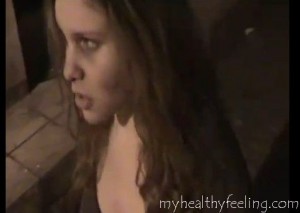Delusional disorder is a mental condition wherein the person affected by it has delusions and beliefs that are non bizarre in nature. A non bizarre delusion is a belief that may be plausible and is within the realm of reality whereas a bizarre delusion is highly improbable and outside the realm of possibilities. For example, it is possible that an individual may be spied on by the government agencies. However, it is bizarre to think that the sky will fall on the heads.
Individuals who are affected with delusional disorder rarely show any different characteristics from the general population and hence delusional disorder is difficult to detect.
Symptoms of delusional disorder and diagnosis
An individual with delusional disorder may be able to work, maintain relationships and exhibit behaviours that are similar to the characteristics of normal and healthy people. However, he/she may avoid doing certain things or live one’s life in such a manner that ratifies his delusional beliefs. For example, an individual who is under the delusional belief that the government is watching him/her may avoid using any form of credit for payments to avoid detection by government agents or he/she may stay indoors at night lest the moon fall on the head.
Delusional disorder can be diagnosed in a person on the basis of certain symptoms. They are as follows:
• The presence of non bizarre delusions for a period of at least one month. The non bizarre delusions may include beliefs such as a cheating spouse, infections, being followed or having a disease etc.
• The delusions do not result in serious repercussions like odd or abnormal behaviour or impaired functioning of the individual in daily life.
• If the symptoms of schizophrenia have never been observed. Symptoms of schizophrenia may include delusions, hallucinations, disorganized speech, negative symptoms and disorganized or catatonic behaviour.
• The delusions have not been caused due to an existing medical condition or due to substance abuse.
• If there have been mood disturbances, then it has been limited to the very brief time periods and in concurrence with the delusion.

Causes of Delusional disorder
Due to the limited opportunities that are available, doctors have not been able to identify definitive causes of delusional disorder. However some causative theories are listed below:
• Delusional disorder has a genetic basis and tends to run in families. Hence, individuals who have relative with delusional disorders, personal or some kind of mental disorder are at greater risk to delusional disorder.
• Individuals who have deficits in cognitive processing of events, thoughts, life, etc. may be at increased vulnerability to having delusions and delusional disorder.
• Some people who may face severe stress in coping with life situations and maintaining status in society may use delusions as a defence mechanism to motivate themselves. Such individual may delude that others are the cause of stress in their life.
Treatment of Delusional disorder
Psychotherapy and medications are used for effective treatment of delusional disorder.
Cognitive therapy which focuses on the thought processes of an individual and works towards cognitive and behaviour modification is widely used by doctors for treating patients of delusional disorder.
Medications like stimulants and anti psychotic drugs may be prescribed to alleviate the symptoms of delusional disorder.